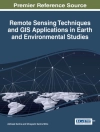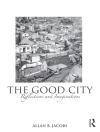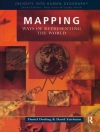Spaces of Work is an accessible examination of the role of labour in the modern world. The authors critically assess the present condition and future prospects for workers through the geographies of place, space and scale, and in conjunction with other more commonly studied components of the globalisation such as production, trade and finance.
Each chapter presents examples of labour practice from around the world, and across multiple sectors of work, not just Western manufacturing. In addition, the book features:
· further reading section with key questions
· glossary of key terms
· short summaries of the main theoretical approaches
· guide to further learning resouces
Spaces of Work is a key book for all social scientists interested in the contemporary state of labour, and the scope for progressive change within the capitalist system. Students of human geography, sociology, international political economy, economics and cultural studies will all find this an invaluable text.
Table des matières
Orientations
PART ONE: GEOGRAPHIES OF LABOUR
The Social Relations of Labour
Working in a Capitalist World
Placing Labour in an Interdependent World
Spacing and Scaling Labour
PART TWO: LABOUR IN PLACE
Re/placing Labour
Varieties of Localism
PART THREE: RE-SCALING LABOUR
Dis/placing Labour
Up-scaling Worker Action
PART FOUR: WORKERS, GEOGRAPHICAL SCALE AND IN/JUSTICE
The Geographical Dilemmas of Justice
A propos de l’auteur
Kevin is Professor of Human Geography and is the School of Environment′s Director of External Relations and the Faculty′s Director of cities@manchester at the University of Manchester. He is a geographical political economist with interests in urban politics and policy on the one hand, and work and employment on the other. His current work explores urban policies to see where they come from, how they travel, where they end up and what these journeys mean for the cities the policies pass through. Theoretically, this involves rethinking what is meant by ‘the urban’ in urban politics, as elements of different places are assembled and reassembled to constitute particular ‘urban’ political realms. Methodologically, this involves doing fieldwork in a range of sites inside and outside of the cities that are the objects of study, literally seeking to reveal the circuits, networks and webs in and through which policies are moved. His co-edited book (with Eugene Mc Cann) Mobile Urbanism: Cities and Policymaking in the Global Age (Minnesota University Press) was published in 2011. He is currently exploring the constitution of financial ′models′ that have emerged in different areas of the world and that have been circulating as a means of funding infrastructure in the current economic condition.












